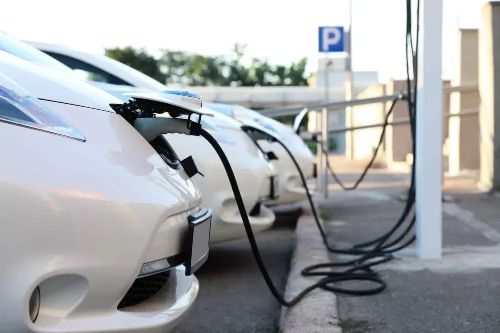


Can You Install a DC Fast Charger at Home? No, DC fast chargers generally can’t be installed in residential homes.
Can You Install a DC Fast Charger at Home?
As electric vehicles (EVs) grow more popular, many owners are eager to find the fastest way to charge at home. The idea of having a DC fast charger in your garage—recharging your EV battery in under an hour—sounds ideal. But here’s the short answer:
No, DC fast chargers generally can’t be installed in residential homes.
Let’s break down why and explore the best home charging options.
EV charging is categorized into three levels:
Level 1: Standard AC Charging (120V)
Uses a regular household outlet (like those for lamps or toasters).
Charging speed: Very slow — often 20+ hours for a full charge.
Installation: None, just plug in.
Best for: Drivers with short daily trips who can charge overnight.
Level 2: Fast AC Charging (240V)
Uses a 240V outlet like those for dryers or ovens.
Charging speed: Adds about 25–30 miles of range per hour. Full charge in 4 to 10 hours.
Installation: Requires a dedicated 240V outlet and a wall-mounted charger installed by an electrician.
Best for: Most EV owners wanting a practical and faster home charging setup.
Level 3: DC Fast Charging (Direct Current)
Supplies direct current directly to the battery, bypassing your car’s onboard converter.
Charging speed: Extremely fast—80% charge in 20–30 minutes.
Installation: Requires industrial-grade equipment, very high voltage (480V+), and special electrical infrastructure.
Best for: Commercial stations, fleet vehicles, highway rest stops—not typical homes.
High Power Demand
DC fast chargers draw 50 kW to 350 kW or more—dozens or even hundreds of times the power used by a typical home (which averages around 1.2 kW). Most homes can’t support this level of electrical load without massive upgrades.
Cost
Commercial DC fast chargers cost $10,000 to $50,000+, plus installation, permits, and utility upgrades. Level 2 home chargers typically cost $500–$2,000 with installation around $1,000–$2,000.
Complex Installation
DC fast charging requires three-phase power (rare in homes), transformers, advanced wiring, permits, and inspections—making it impractical for residential settings.
Safety and Regulations
High-voltage equipment demands strict safety protocols and trained personnel, usually available only in commercial or industrial zones.
While DC fast charging isn’t realistic at home today, Level 2 chargers offer an excellent balance of speed, convenience, and cost:
Speed: 25–30 miles of range per hour; full charge overnight.
Compatibility: Works with nearly all EVs.
Convenience: Easy to use—plug in when you arrive home, and your car is ready by morning.
Installation: Requires a licensed electrician to install a 240V outlet and wall charger.
Many utilities offer rebates or incentives to reduce installation costs, making Level 2 charging even more accessible.
Portable DC fast chargers or battery-based units exist but have major limitations:
Very expensive
Limited battery capacity
Slow recharge for the unit itself
Generally low efficiency
They’re mostly experimental or for emergency use—not practical for everyday home charging.
Technological advances—like better batteries, grid upgrades, and solar+storage integration—may eventually make home DC fast charging viable. But for now, cost, infrastructure, and safety concerns keep it out of reach for most homeowners.
| Level | Power Source | Voltage | Speed | Installation | Best For |
|---|---|---|---|---|---|
| Level 1 (AC) | Standard outlet | 120V | 3–5 miles/hour | None | Light use, emergency |
| Level 2 (AC) | Dedicated outlet | 240V | 25–30 miles/hour | Electrician required | Daily home charging |
| Level 3 (DC) | Commercial grid | 480V+ | 80% charge in ~30 min | Industrial install | Public stations, fleets |
For home EV charging, Level 2 chargers are the practical, affordable, and efficient choice. They provide reliable overnight charging without costly upgrades or safety concerns. DC fast charging remains for commercial use—for now.
If you’re ready to install, contact a licensed electrician and your utility company to find the best Level 2 charger and possible incentives.Know more about Google SEO Directory
